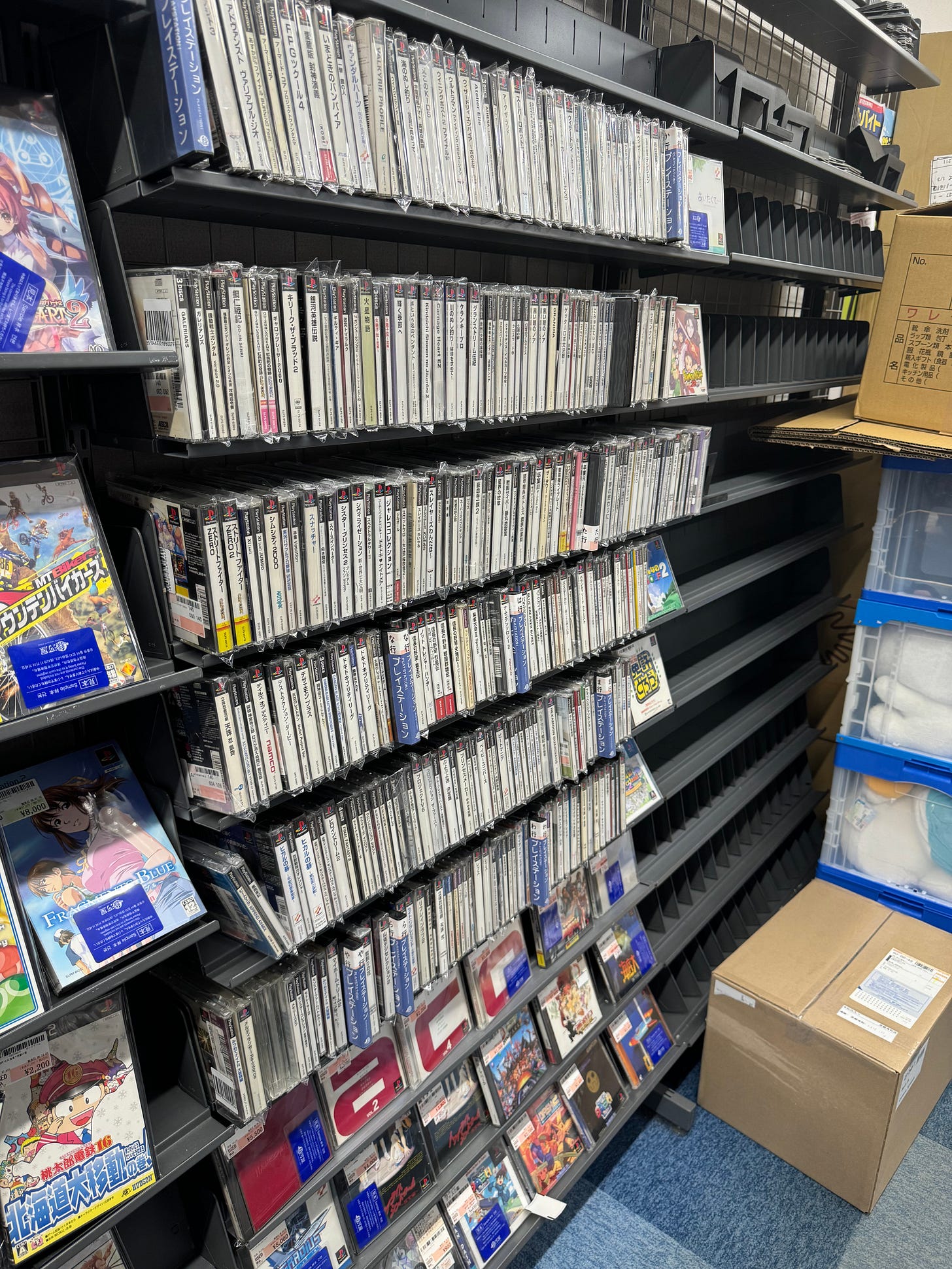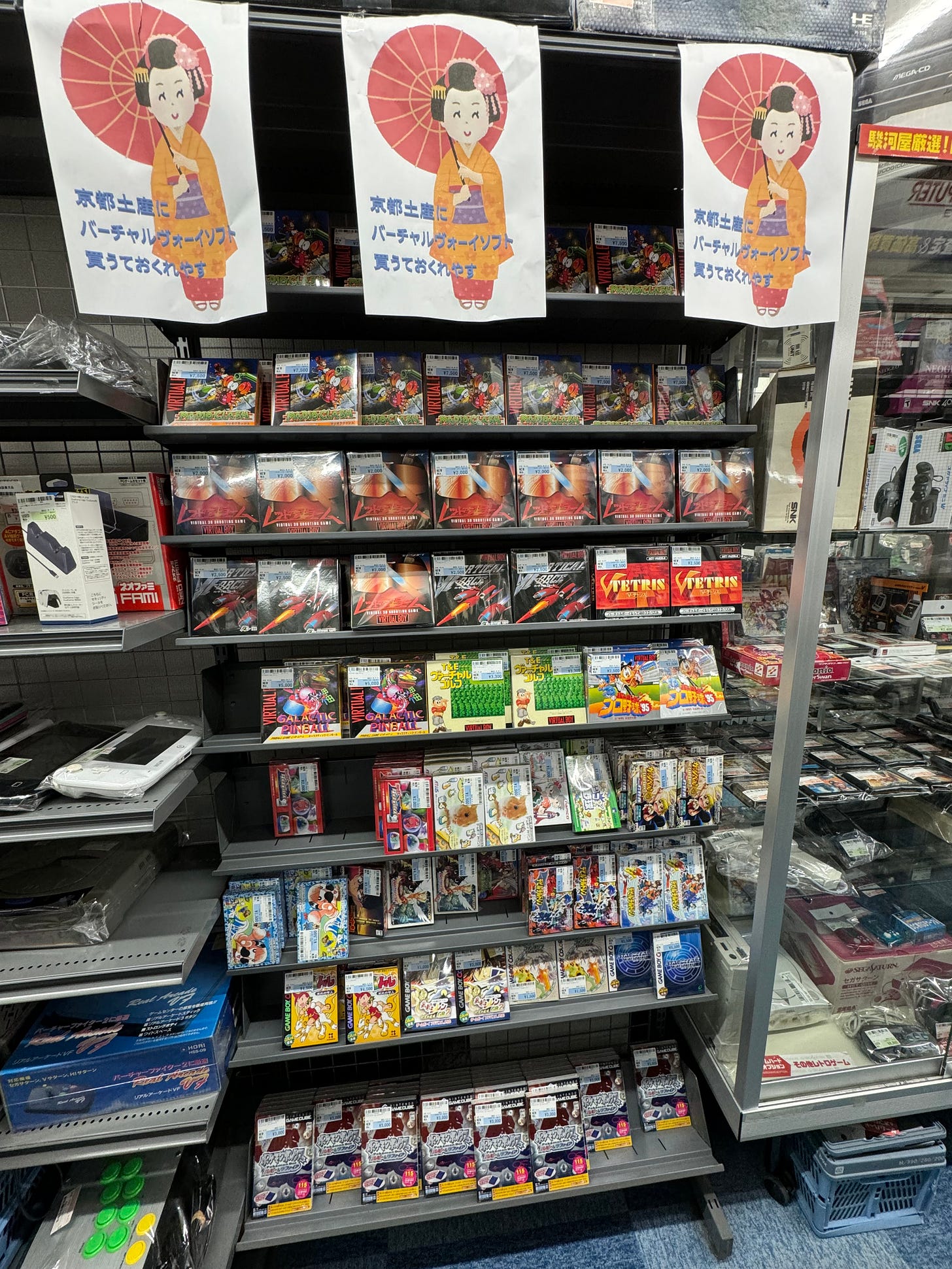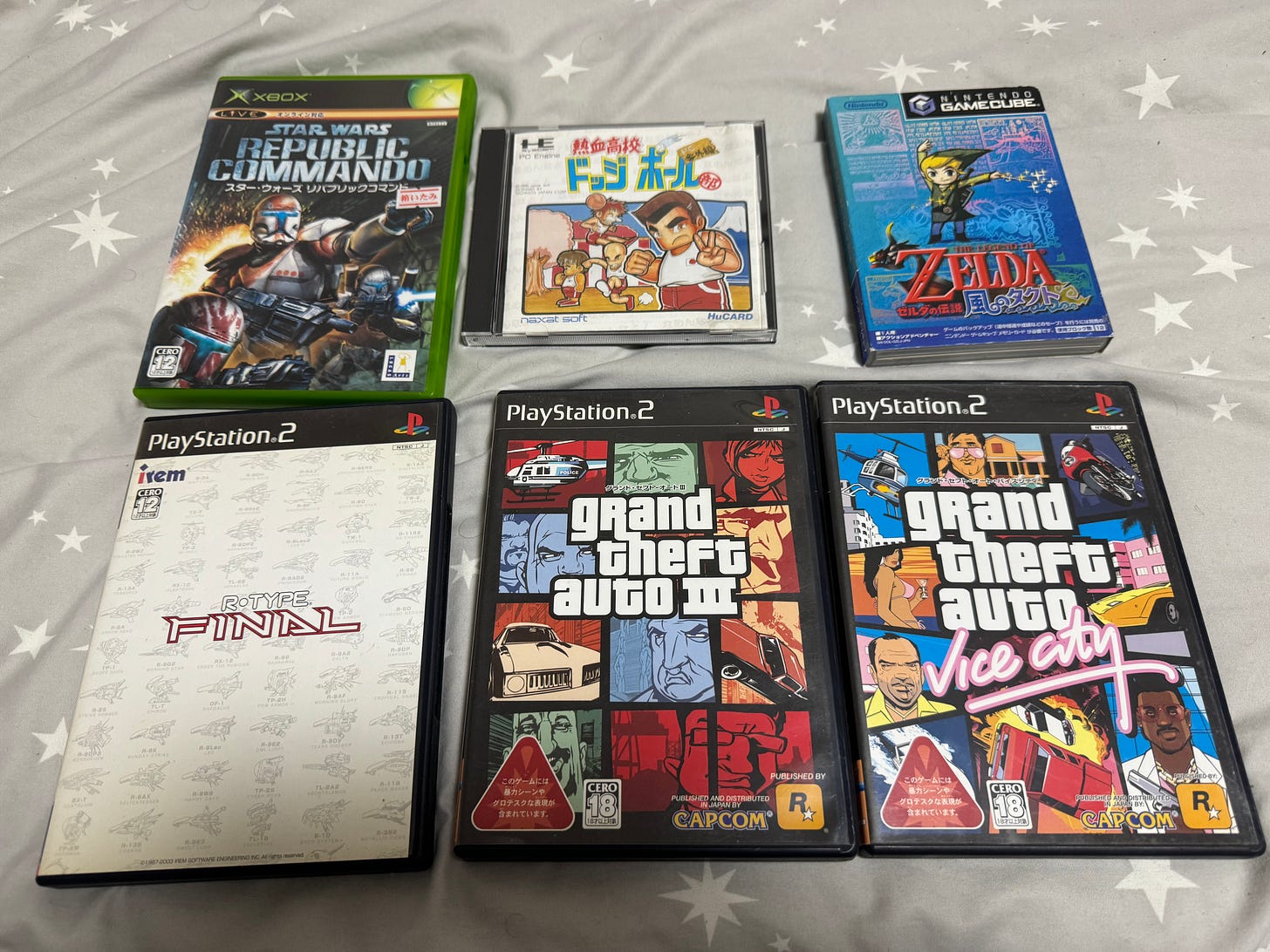The Truth About Retro Game Hunting In A Post-Pandemic Japan
Out now in Time Extension and reposted here with some extra thoughts in Bonus Perspectives.
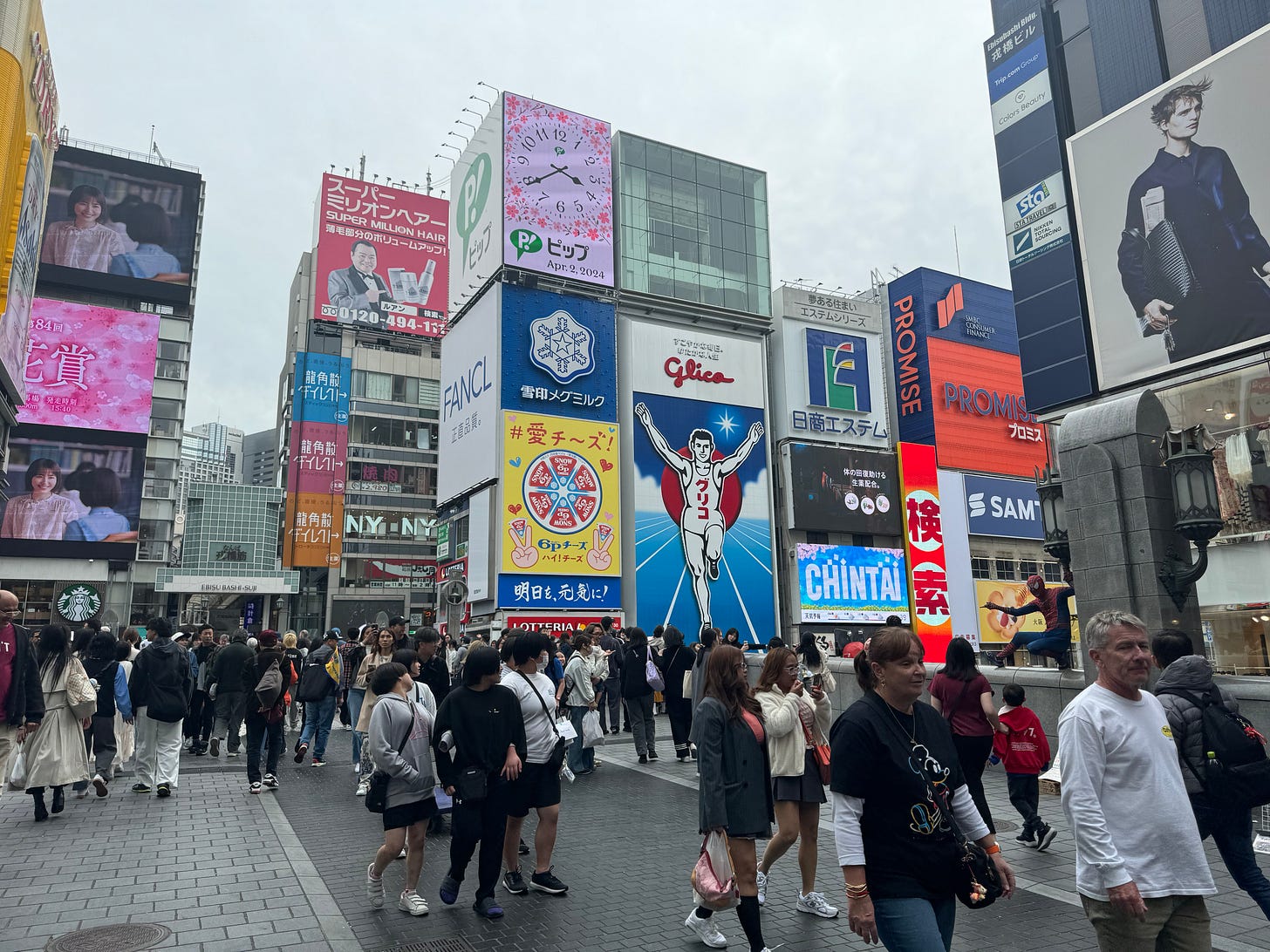
It’s been a packed few weeks of new freelance writing assignments! Don’t worry, I haven’t forgotten you fine Substack subscribers here at Foreign Perspectives. Original articles are still coming and my next will be out soon, but in the meantime I’m pleased to announce that I have a new freelance gig with Time Extension, a fantastic website dedicated to all things related to retro gaming.
In my debut piece for them, I’ve covered the state of the retro video games market in Japan. You can read my article here.
As I explained in the repost of my Shōgun review for The Spectator, I will be using my Substack as a platform to both inform my subscribers of my published work and to provide some additional thoughts on the subjects covered in those articles. I will give context around how/why a piece was written, post images or written sections that didn’t make the final cut, and essentially provide an overall debriefing on the topic at hand. Consider this column the “special features” to the main feature you’d watch on a DVD or Blu-ray of a film. I’ve retroactively decided to call this portion “Bonus Perspectives” as a reference to that concept and to this Substack’s name.
Bonus Perspectives will always be completely free to all subscribers and no further action is needed to receive these newsletters in your email inbox. This means that in addition to the original pieces I post on Foreign Perspectives, you will also receive a regular dose of extra written content from me in other outlets with even more commentary here! I already have multiple articles commissioned that are in the making, so stay tuned for future updates.
But back to retro gaming in Japan. Please come back here to Bonus Perspectives after you’ve read the piece in Time Extension.
Bonus Perspectives
This writing opportunity came into my lap after site editor Damien McFerran discovered my tweets commenting on depleted stocks of retro games in Kyoto. He subsequently featured them in an article that went viral, which compelled me to write my own take. I got in touch with Damien, and he invited me to contribute to Time Extension after I pitched the idea. As someone who has been living in Japan for six years as a longtime enthusiast of retro video games, I aimed to provide a unique perspective on how much the landscape has changed over time here.
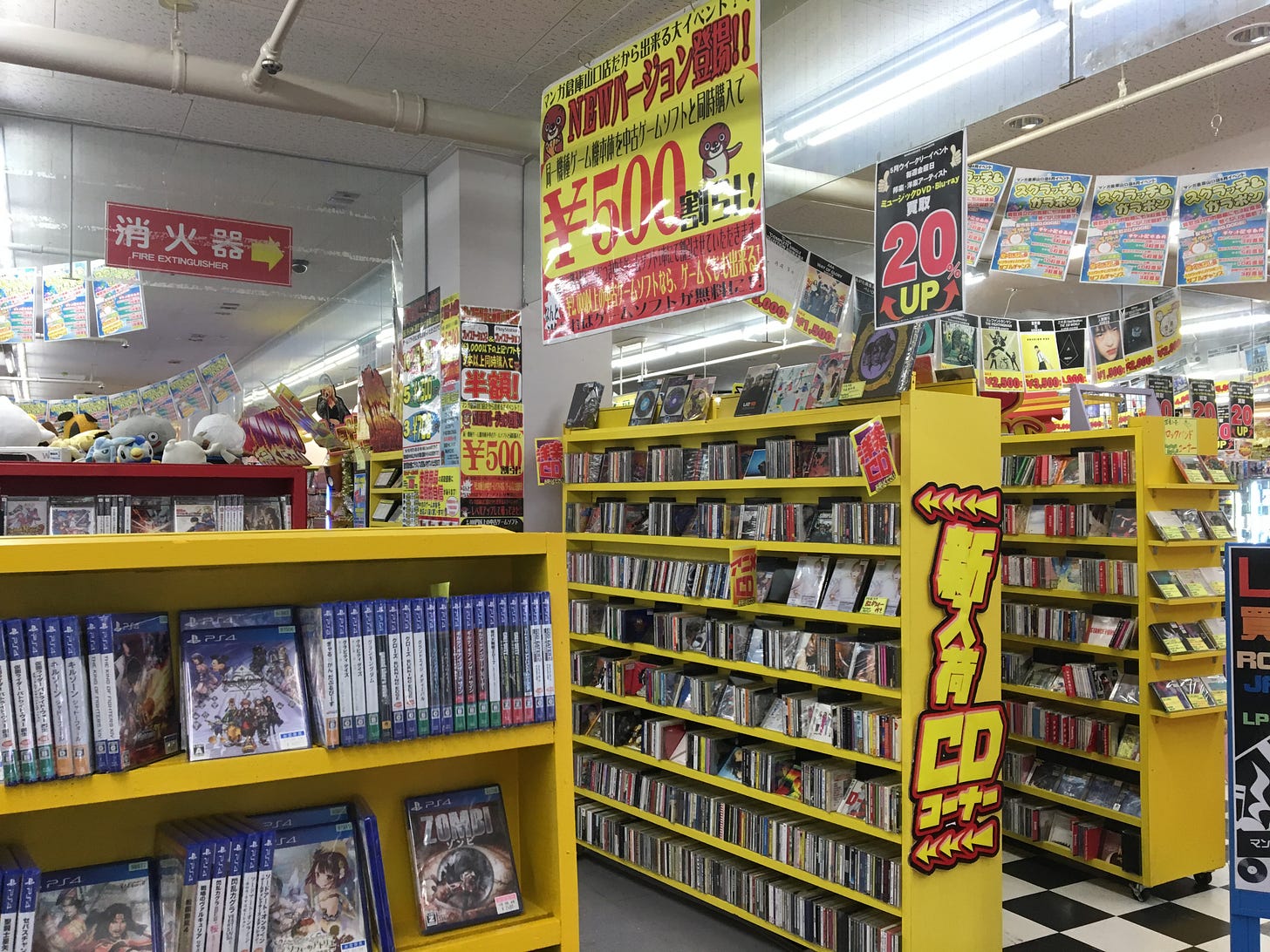
The reception to my article has been very positive and many people who’ve visited Japan in the last few years commented on having similar experiences with prices going up and good finds becoming rarer in big cities. Little editing was required and Damien had nothing but the highest praise for it. So overall, I’m generally pleased with how the piece turned out. However, I think a few minor points are worth addressing.
As soon as my initial tweets went up before I wrote the article, some people noted that dead stock, i.e. unsold product, had recently been popping up in some Surugaya stores across Japan. One Twitter account, who I won’t link here because I don’t feel compelled to give him attention, took a snide jab at me for saying that tourists have taken everything and implied that I was either exaggerating the problem or had no idea what I was talking about. So I went to the Kyoto Surugaya I tweeted about to check for myself.
Sure enough, there was indeed one small section of dead stock being advertised as “Kyoto souvenirs.” Yet all it consisted of was a few Virtual Boy games, some moderately common Game Boy games, and Pokémon Box Ruby & Sapphire for the GameCube which is really just storage software. Mildly interesting stuff I suppose, but that’s it. The rest of the store was largely the same as I had left it weeks ago. A couple years ago this Surugaya had two floors of games and it’s now down to one with the available items greatly reduced.
The Twitter account which was having a go at me also happens to live in Hokkaido, Japan’s northernmost region. Far fewer tourists go there, which means that stores in cities like Sapporo are likely to have more stuff than more popular places like Tokyo and Kyoto. My tweets were specifically referring to the particularly Surugaya I had frequented for years, while my article even notes that rural towns can still offer some good deals compared to touristy urban areas.
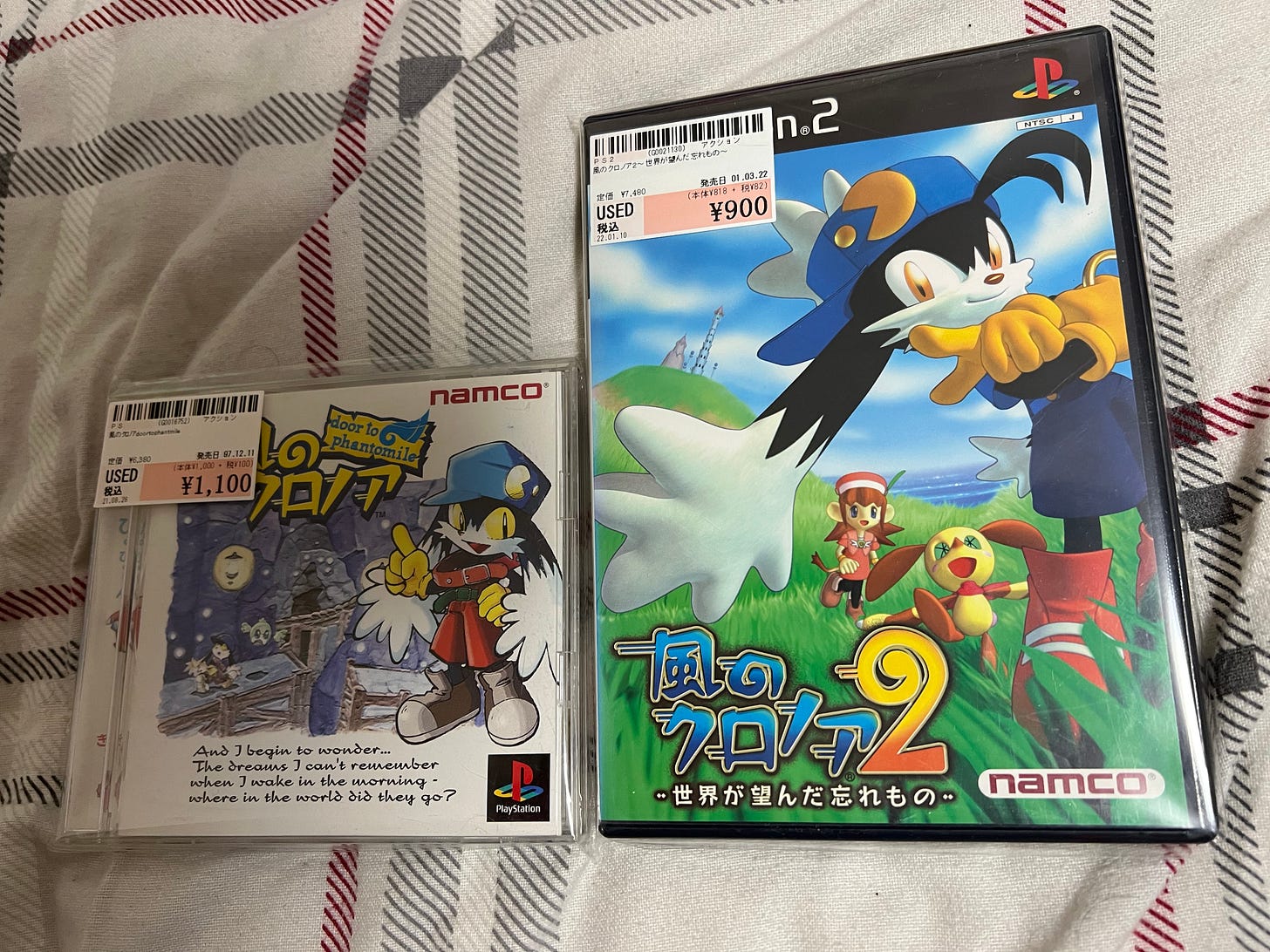
I mention this because it’s only relatively recently that I became aware of just how much drama permeates online retro gaming circles. A YouTuber friend of mine who shall remain nameless has been in this community for years and is strongly disliked by other content creators for his takes on controllers and video signal converter boxes, while I have also seen other YouTubers get into similar heated arguments. You would think that a hobby about pieces of dusty consumer plastic would be rather dry, but there’s never a dull moment in this scene. Human beings are always going to find excuses to be at each other’s throats, and retro gaming is no different.
Part of this likely stems from how many enthusiasts have spent countless hours and thousands of dollars on this hobby, which makes them defensive if they hear a take which contradicts their worldview. But as I wrote in my article, I’m not claiming that tourists are wrong for wanting to buy games they otherwise can’t easily get in their own countries nor am I saying that there are literally zero good deals left to find. Back in January, me and a buddy drove around neighboring Shiga Prefecture and because we hit stores that are far away from touristy areas, we both found some nice things at reasonable prices.
An even more bizarre claim I saw in a very small minority of comments that others also criticized was this notion that I was fostering xenophobia against foreigners. I should once again state that the only people I’ve been criticizing are scalpers who clear entire shelves of products just to resell them and have no actual interest in the hobby. Even then, I noted that none of their behavior is even illegal, just very unfortunate for everyone else who actually wants to play these games. As a capitalist myself, I fully know how the system works. My thoughts are merely an autopsy on what has happened in the last few years to get us to this point.
While not directly related to video games, I suspect that some of these odd remarks stem from Joe Biden’s recent comments of Japan being a “xenophobic” country which caused quite a bit of controversy last week around the time my article went live. Using Twitter Blue’s extended character limit, I wrote a long post weighing in on why I don’t think Japan is actually as xenophobic as most think. It was generally well-received, but inevitably a small number of replies felt the need to bash me for points I wasn’t even making, such as the idea that Japan has literally zero xenophobia. Reading comprehension is evidently not some people’s strong suit.
As Japan grapples with a weak yen, it’s a guarantee that millions of people from across the world are going to take advantage of that in order to have a cheap holiday. The Japanese government knows this and while they try to figure out how to improve the economy, the last thing they want is for their country to look unattractive to inbound visitors both temporary and long-term. I’ve already written a piece for The Spectator about tourism and increased immigration to Japan which will be out later this month, so look forward to more detailed thoughts on this subject.
But when it comes to the topic of retro video games in Japan, I’m glad that I could fully convey these thoughts in a detailed piece for Time Extension. Games are meant to be played and if they’re in the hands of people who want to relive their childhoods or experience a piece of pop culture history, I’m never going to be bothered by that. While acquiring some hardware and software isn’t as cheap as it was years ago, I still find ways to get most of what I want with enough patience. For me at least, it’s far from game over.
Foreign Perspectives is a reader-supported Substack. If you like my work and have come this far as a new reader or free subscriber, consider opting for a paid subscription so I can continue writing in-depth articles such as these on a regular basis. Your support is greatly appreciated!


